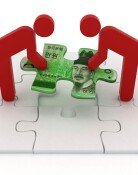Visit by North¡¯s leader has hurdles
Visit by North¡¯s leader has hurdles
Posted August. 23, 2000 13:43,
With news media reports August 22 of the "possibility of North`s leader Kim Jong-Il`s reciprocal visit after November," many of the South¡¯s government officials and experts on North Korea have expressed skepticism.
According to the skeptics, there will not be any reason for Kim to be in a hurry for the reciprocal visit, nor are the conditions particularly favorable. They point to the level of the inter-Korean reconciliation mood as the greatest variable for the decision on the time frame for Kim`s reciprocal visit.
"There needs to be a more concrete improvement such as the establishment of a facility for the reunion of separated families and a greater economic cooperation and military trust," a high-ranking Seoul government official said. "If a reciprocal visit is made prior to such changes, his visit would only burden the two states."
The political situation and agenda in the North also are deciding factors.
"People are against my proposed visit to Seoul," the North`s leader said to South Korean President Kim Dae-Jung on August 6.
After the death of late President Kim Il-Sung, the very office of chairman has been abolished, and the North currently has an altered system of governance in which Kim Jong-Il, the holder of real power, and Kim Young-Nam, who is the ceremonial head of the state, alternately represent the state. As such, during the ceremony to celebrate the 55th anniversary of the establishment of the Worker`s Party on October 10, Kim Jong-Il is expected to decide on a new party line and commence work for the revision of the North`s constitution, according to the experts. The discussion on the reciprocal visit will have to wait until the revision of the system of governance is completed.



![보아, 25년만에 이별…SM엔터 “자부심이자 상징” [공식]](https://dimg.donga.com/c/138/175/90/1/wps/NEWS/IMAGE/2026/01/12/132096928.2.jpg)



